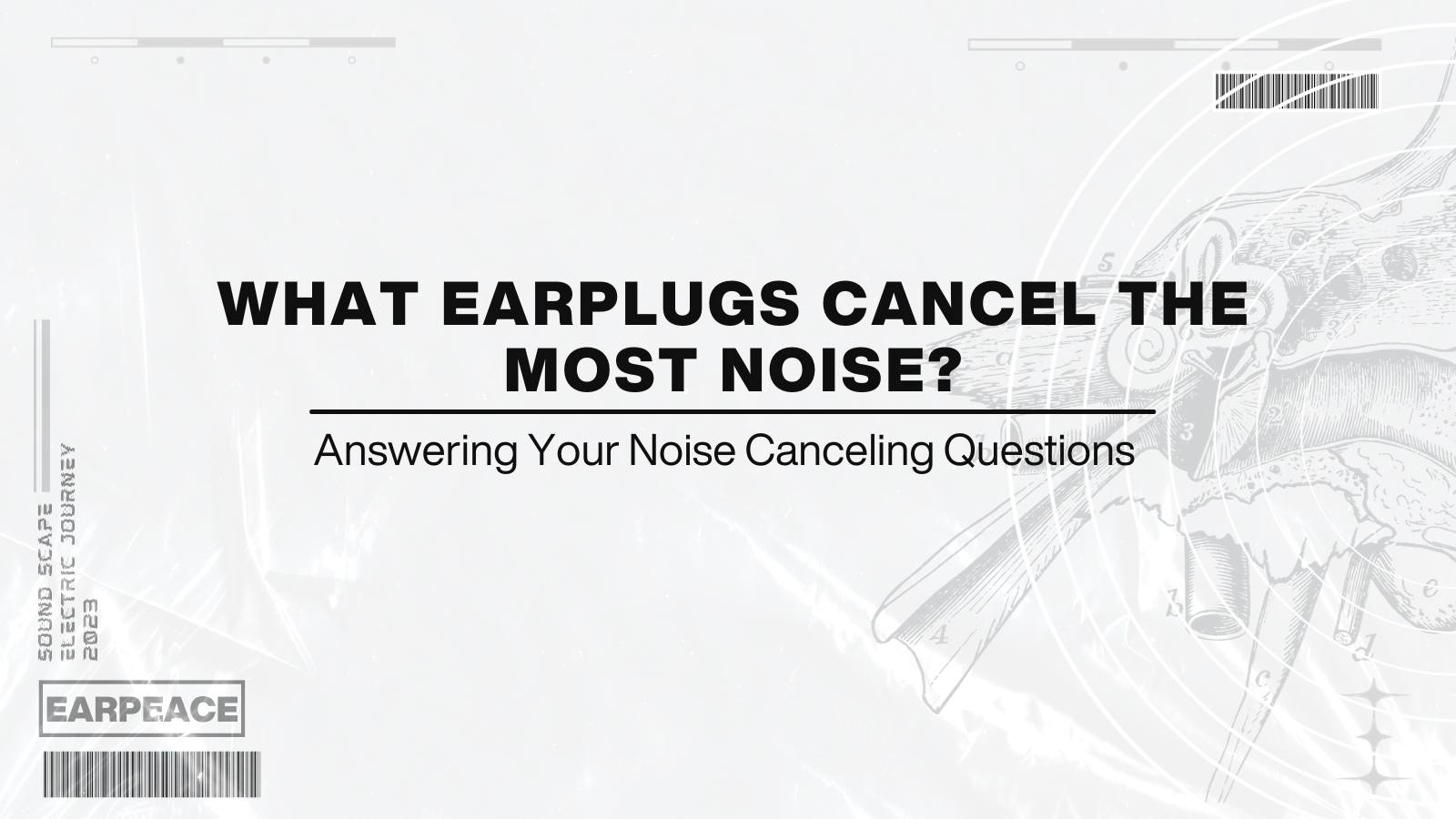Whether you work in a noisy environment, attend concerts frequently, or simply want to block out the noise while sleeping, finding the right earplugs for noise cancellation is crucial and here’s why:
Hearing protection like earplugs are important for both the immediate effects of noise (the ringing ears or muting sound you might experience after a loud concert) and also the long-term effects that can build over time from your surroundings without protection. Over time, that small amount of damage can become a lot of damage and cause noise-induced hearing loss or tinnitus–both of which are permanent. Because of its cumulative effects, we often consider hearing loss as another aspect of aging, but similar to the cumulative effects of sun damage we can prevent that hearing loss with the use of earplugs.
Looking for an in-depth guide to earplugs and your hearing? Try:
The Complete Guide to Choosing Earplugs
Understanding Noise Cancellation
Before we dive into the best earplugs for noise cancellation, it's important to understand how noise cancellation works. Noise cancellation technology uses microphones to pick up external sounds and then generates an opposite sound wave to cancel out the noise. This technology is commonly found in headphones, but it can also be applied to earplugs.
It's important to distinguish between noise cancellation and noise isolation. While noise cancellation actively counters noise with opposing sound waves, noise isolation simply blocks out noise by creating a physical barrier between your ears and the external environment. Both methods can be effective, but they work best in different situations.

High fidelity filters are attenuated to be ear plugs that allow you to hear conversation despite the loud noise. Or, the pure music sound rather than the distortion and noise of sheer volume. It’s an experience you can’t quite understand until you try it for yourself. Ear plugs that block all sound for sleeping don’t use high fidelity filters, they are solid or have a “full block” filter that closes the sound off.
Trying to find info for choosing the right concert earplugs? Try:
Cutting Through the Noise: The Ultimate Guide to Best Earplugs for Concerts
Factors to Consider
When choosing earplugs for noise cancellation, there are several factors to consider. These factors will help you determine which earplugs are best suited for your needs. Let's take a look at some of these factors:
Different Types of Earplugs
There are different types of earplugs available in the market, each designed for specific needs and environments. For instance, foam earplugs or a full block silicone earplug are the best earplugs for sleeping and general noise reduction, while musician earplugs or earplugs with high fidelity filters are designed to reduce noise without affecting the quality of music. Understanding the different types of earplugs can help you choose the right one for your needs.
Need help choosing earplugs for sleeping with a snorer? Try:
Turning Down the Noise: The Best Earplugs for Sleeping with a Snorer
What to Look For
Noise Reduction Rating (NRR)
The Noise Reduction Rating (NRR) is a measurement that indicates how much noise an earplug can block out. The higher the NRR, the more effective the earplug is at reducing noise. NRR is measured in decibels (dB), which is a unit of sound. An increase of 10 dB means that the sound is 10 times more intense. Therefore, an earplug with a higher NRR will be more effective at reducing noise. However, it's important to note that NRR is not the only factor to consider when choosing earplugs.

Comfort and Fit
Comfort and fit are crucial when it comes to earplugs working properly. If the earplugs are uncomfortable or do not fit properly, they may not provide adequate noise cancellation due to “leaks” (or from having to remove them completely due to discomfort). A good fit is not just about comfort, it's also about effectiveness. If the earplugs do not fit properly, they may not create a good seal in the ear canal, allowing noise to leak in. Therefore, it's important to try different sizes and shapes of earplugs to find the one that fits you best. Look for earplugs that are made from soft materials and come in different sizes to ensure a comfortable and secure fit.
Looking for an in-depth guide to earplugs for sleeping? Try:
Canceling the Confusion: Our Guide to the Best Noise Canceling Earplugs for Sleeping
Are foam or silicone ear plugs better for concerts?
The short answer is what we always say–the best earplugs for concerts are the ones you wear. Even if you are buying a set of foam earplugs on the way to the concert, some protection is better than none. If you have the ability to plan ahead, a set of silicone, high fidelity earplugs will be the best fit as the filters are attenuated for a premium music experience. Trust us that you don’t want to find out the hard way what happens if you go to a concert without earplugs. The ringing ears and potential damage just isn’t worth it.
Conclusion
Remember, the best earplugs for you may not be the best for someone else. Everyone's ears are different, and what works for one person may not work for another. Therefore, it's important to try different earplugs and find the one that fits you best and meets your specific needs.
Noise-induced hearing loss is a serious issue that can be prevented with the right ear protection. By choosing the right earplugs for noise cancellation, you can protect your ears and enjoy the silence.




Share:
What are the Best Earplugs for Sleeping With a Snorer?
Canceling Insomnia: The Best Noise Canceling Earplugs for Sleeping